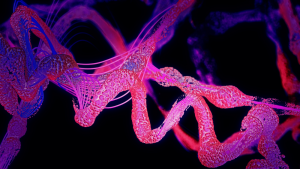
What Are the Best Anti-Aging Fruits and Vegetables?
We all want to age gracefully. One of the best ways to do that is by consuming plenty of fruits and vegetables. Yet, not all

Phytonutrients, otherwise known as phytochemicals, are beneficial compounds found naturally in plants. There are over 25,000 phytochemicals that have been identified in nature. Today, we’re taking a closer look at six of the most beneficial phytochemicals and what roles they play in the body.
There are over 600 known carotenoids, and they give produce red, pink, yellow, and orange colors in vegetables and fruits. These phytochemicals have powerful antioxidant properties, protecting your cells from free radical-caused damage. Some carotenoids also provide other benefits besides defending against oxidants.
Beta-cryptoxanthin, beta-carotene, and alpha-carotene, for example, are converted into vitamin A by your body. Vitamin A plays many important roles in your body, such as keeping your eyes healthy and your immune system running strong. Lycopene is another very beneficial carotenoid. It is found in abundance in tomatoes, watermelon, and pink grapefruit, and it is known to mitigate the risk of prostate cancer.
Flavonoids are found predominantly in legumes, onions, green tea, and coffee. This type of phytochemical is known for its antioxidant properties and can reduce the likelihood of certain types of cancer. Additionally, certain types of flavonoids are known to reduce inflammation, mitigate the risk of an asthma attack, and protect against coronary heart disease.
Resveratrol is a phytochemical found in peanuts, grapes, purple grape juice, and red wine. It is primarily known for its antioxidant and anti-inflammatory properties. However, this very important phytochemical can also mitigate the risk of cardiovascular problems. If you are at high risk for coronary heart disease or other cardiovascular problems, you should strongly consider taking a dietary supplement containing resveratrol.
Glucosinolates are phytochemicals that are found in abundance in vegetables like cauliflower, broccoli, and kale. This phytochemical has been shown to mitigate the risk of cancer, and it is incredibly beneficial to your digestive system. Additionally, it is believed that this type of phytochemical has anti-inflammatory properties. But, more research needs to be conducted on this compound’s benefits.
Ellagic acid, like many phytochemicals, has been shown to mitigate the risk of cancer by helping the liver neutralize carcinogens. It is also known to lower cholesterol, reduce inflammation, and protect cells from damage caused by free radicals. Good natural sources of this phytochemical include raspberries, strawberries, blackberries, and walnuts.
Phytoestrogens are plant compounds with a similar structure to estrogen, and they can produce mild estrogenic effects in the body. Soy foods contain a special type of phytoestrogen called isoflavone. There is some evidence to suggest that isoflavone consumption can provide such benefits as a reduction in the risk of bone loss in women and a reduced likelihood of endometrial cancer.
Some of the most beneficial phytochemicals include carotenoids, flavonoids, resveratrol, glucosinolates, ellagic acid, and phytoestrogens. If you think you could benefit from supplementing the phytochemicals you get from your diet, contact us now at Panacea Scientific to discover which supplements are right for you or browse our inventory.

We all want to age gracefully. One of the best ways to do that is by consuming plenty of fruits and vegetables. Yet, not all

Our “metabolic pathways” are the key interactions that take place every moment between our genes and our entire cellular structure. Simply put, a metabolic pathway

Most people think they can get enough vitamin D3 from the sun, but it’s just not possible. The sun isn’t enough for most of us.

Payment types accepted:
Visa/MC/Discover/ American Express
© Copyright Panacea Scientific 2020. All rights reserved. | Website by Infinite Web Designs